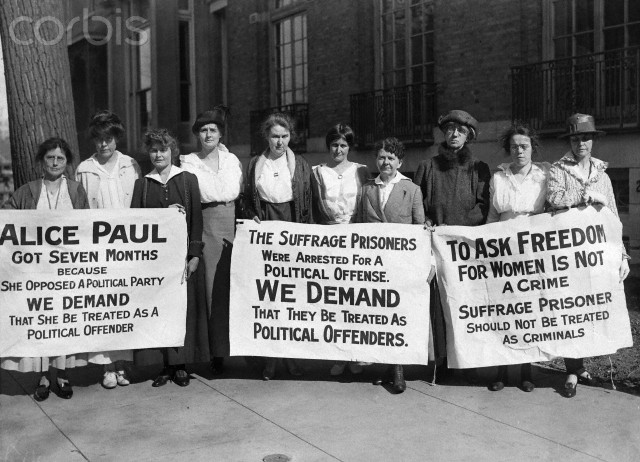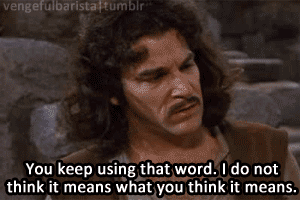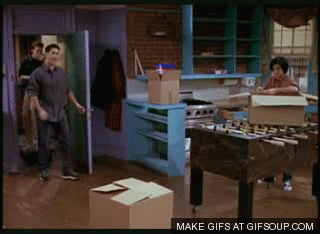Money
/Let's talk about money.
About our relationship with money.
I don't know about you, but my relationship status with money stands as: It's complicated.
I've gotten super into podcasts lately (thanks Joel!) and a particularly interesting one is called Death, Sex and Money. It's a podcast where the host talks to people about those things that are typically considered taboo in decent conversation, but frankly shouldn't be.
Talking about money is often a no-no. Which is weird. Money affects us all. Those who have a lot, those who have a little, those who want more, need more, or simply have hangups about it.
I'll be the first to admit that I have some money hangups. I suppose it's not all that surprising. I've spent my twenties being pretty darn broke.
While it was somewhat charming at first— young, struggling artist living in the big city has a certain daydreamy quality— I'm beginning to get a bitter taste about it. I'm a bit tired of not being able to build a reliable savings or even pretend to be able to have enough money available to start planning for retirement. (Because as all financial planners will tell you: start early!)
Writing this, however, does force me to stop pouting and look at all sides of the equation. This has caused me to notice the many ways in which I have it incredibly good. The truth is that my level of broke is occurring after having a number of comforts and safety measures paid for.
I live alone. It's a studio apartment, I'm not being grandiose about it, but I could save a lot of money if I was living in a place with several roommates. I've made the choice to pay more in rent for the luxury of privacy. I pay for a parking structure because the parking situation in my neighborhood is heinous. I work a lot of late hours and not only could I be driving around for a while looking for parking, but the idea of walking a long distance, late at night and alone, did not feel particularly safe. I think these are logical choices, but they certainly are choices I am fortunate to be able to make. I also value quality food (no surprise there) and spend a much higher percentage of income on food than average Americans. While I hardly ever go shopping (birthdays and Christmas are when I get new clothes), I still manage to go to some fun (cheap) events, attend some fun (cheap) concerts and go for fun (cheap) weekend adventures. All this while making rent, owning a car, paying car insurance, health insurance, and my student loan payment.
To summarize: I'm okay. I'm actually quite fortunate. But in order to do those things, all the money that I have coming in is immediately going back out.
And that's not okay.
Not really. I'm not 21. I'm 29. I want to build a savings. I want to plan for retirement. I want to take a reasonable vacation or mini trip without it being really stressful as soon as I come back to pay for my basic expenses. And, yes, I would like to occasionally buy things throughout the year.
On the one hand, I completely recognize how fortunate I am to even have these goals. I am aware that there are plenty of people in dire straights who would love to be in the position that I am currently in. Still, I think I am completely within my right to strive for these things. To now be in a place where I'm not willing to continue settling for less than these things.
Money does not buy happiness, but up until a certain point, it does make a huge impact on happiness. That number is much lower than a lot of people think, but that number is higher than where I am currently at. Most studies about money and happiness have found that (depending on personal circumstances) something around the $50,000-$70,000 range is where an individual's income reaches the level where money is no longer directly correlated with happiness. Basically, if an individual is making at least $50,000 (or I would guess more towards $70,000 in high cost of living metropolitans like LA) that person is usually able to comfortably feed, clothe and house themselves, build some savings, and pay for enough luxuries like a vacation and social outings to not have real money woes. At this financial level, happiness is almost exclusively related to things like job satisfaction, personal relationships and health. (You know, the things that we all expect to have a huge impact on our happiness.) Yachts and private jets are not involved.
Now, you can of course become much more wealthy and have a grand ole time on a yacht or private jet, but rich people are not necessarily any happier than basically comfortable people.
And that is the point. I don't yet feel basically comfortable.
The math supports my feeling. My income is below that $50,000-$70,000 range.
So here I am declaring that I am actively in pursuit of the magic $70,000 comfort level.
And yet, there is a tinge of guilt that comes up.
After all, society has lots of negative terms for people seeking greater income: greedy, money grubber, gold digger, money hungry etc.
While I can rationalize my level of desired income as reasonable and responsible based upon the aforementioned logic, I still get that pang. And I think that is worth discussing.
I find it completely moral to attach negative connotations to the idea of seeking ever more power and financial prowess at the expense of others, but does simply seeking moderate comfort fall under that umbrella? Or what about those who do in fact want to be wealthy, but they desire to attain that wealth honorably and with the intention of spending it supporting good companies and good causes? I for one, love to purchase items from companies who practice environmentally conscious methods, pay their people living wages and do good in their communities. And guess what? Those items cost a lot more than the ones from companies who take advantage of inhumane labor overseas and have no concern for environmental impact. I hate to break it to you, but a shirt should not cost $5. Unless it's from Goodwill or a Thrift store, that is not a reasonable market price. Someone is getting screwed. Probably children in Asia. It's disgusting and I don't want to support those companies. I want to support companies that pay fair wages.
I would argue that as a society in America, we don't have a proper understanding of what price points for various items really should be. We have been confounded by the ridiculously low prices offered by large companies who treat their labor force like crap. Then, we as consumers get all bubbly and excited about the notion of cheap finds without asking the obvious question of WHY?
Why is this so darn cheap?
Is it because it is poor quality? Maybe it just has less features. Maybe it's on sale because the company bet wrong and they have way too much stock left.
There are plenty of acceptable reasons why an item might cost less than a competitor, but most of the price points on common items that we purchase everyday, (food and clothes being big ones), are way too low for some not okay reasons.
While the opposite is certainly also true— fashionable brands can charge huge markups simply because of the value attached to their label without actually having any superior practices— it doesn't change the fact that our big bargain brands are often guilty of taking advantage of their employees. This is all to say: Do your research. Know who you are buying from.
Know that if you are paying more it is for a good reason and know that if you are paying less it is for an acceptable reason.
I fully recognize that most people have no interest in adding work for themselves and will absolutely choose the 'ignorance is bliss' approach to consumerism. But that is a pretty shameful cop out. It just is.
Especially with the internet, information is so easily available that it doesn't take that much work to learn about companies. Plus, those that are in fact doing good things are pretty in-your-face about it.
This is not to say that it has to be an all or nothing approach. It is quite hard to completely eschew companies with questionable practices, so I'm not about to shame you for ever buying something questionable. But I fully stand by the idea that we need to change our way of thinking. We cannot allow ourselves to be in the dark about company practices.
It is a willful ignorance.
Even if we have been confounded by the saturation of low prices in this country, it is because we have allowed ourselves to be. We are aware of child labor overseas. That story has been told for decades. We have some understanding of costs and value. After all, we get paid. We know minimum wages. It is not as simple as just not knowing any better. We willfully turn a blind eye to this reality when we purchase these unreasonably cheap things with abandon. When we question the higher price points of products by companies that keep their workforce in the USA, pay livable wages, provide health insurance, and purchase their materials from other companies that do the same.
When we imply that $5 clothes are somehow deeply American while the responsibly priced $25 shirt is just 'hipster' or 'elitist' we are perpetuating this negative stereotype. The opposite is usually the truth. If that $5 is caused by American jobs being replaced by child labor overseas and the $25 is representative of paying Americans legal wages, then the $25 shirt is the inherently American option.
When meat products are priced incredibly low, there is a cost. It usually means that the animals are being kept in Confined-Animal-Feeding-Operations (CAFOs) that are ridiculously inhumane and often incredibly unsanitary. The workers who work in the slaughter houses are often immigrants who are being paid less than minimum wage and have no insurance or rights. Butchers used to be paid well. They made a good living with benefits and there were practices in place to ensure that no one ever worked the particularly upsetting jobs (actually killing the animals for example) too many shifts in a row. There was a recognition and appreciation that repetition of those jobs could be damaging to an individual's mental health. Now, in order to force prices lower and lower, these poor people work incredibly dangerous jobs, are often injured on the job without any recourse, and are often traumatized by their work. When this happens, we as a community all suffer.
The properly raised animals who are humanely killed and processed by people who are paid appropriately will cost more. We should accept this as the necessary price of meat.
Okay so I've moved through a lot of different money-related subjects.
But I really do feel that they are related. Here it is:
I want to make more money because I am living below the magical "comfortable" level (as supported by studies) where I can stop feeling so stressed about paying for things all of the time. Yet, I have some guilt and hangups about desiring more money because negative connotations with money seeking are pervasive in our society. Still, I am able to justify wanting more money not just because I truly believe that everyone is entitled to wanting to reach the "comfortable" level, but also because I want to have enough money to spend it on companies that are operating in ways that I want to support. Whether we are talking about necessities like food and clothes, or unnecessary wants, there are companies out there who make the world go round in a wonderful way. They make quality products and do so by treating their employees well. Which means that they create jobs that people actually want. They contribute to a cycle of money going in and out that allows for everyone (not just the top 1%) to live happy, healthy lives.
. . . . . . .
There are way more money-related subjects on my mind so I am guessing that I will have a future post to hit on some other topics of a financial nature.
One such teaser topic: Are the super wealthy required to give back financially to society? If they don't are they ethically 'bad' people?




















































